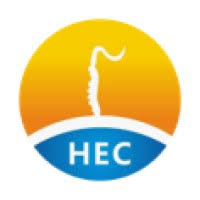Novartis to lose $2.8 Billion Drug to Generic Drug Makers
- IP News Bulletin
- Jul 6, 2022
- 2 min read
Updated: Jul 7, 2022
Novartis Pharmaceuticals Corporation
v.
HEC Pharm Co., Ltd., HEC Pharm USA Inc., and Ors.
United States Court of Appeals for the Federal Circuit
Decided on – June 21, 2022
The Pharmaceutical company Novartis Pharmaceuticals Corp lost its patent (US9,187,405) in an appeal filed by generic drug companies in the United States Court of Appeals for the Federal Circuit.
The patent in question, is a method of treating multiple sclerosis with fingolimod “at a daily dosage of 0.5 mg, absent an immediately preceding loading dose regimen." Under this patent Novartis marketed drugs under the brand name Gilenya, which practices said patent.
A generic drug producer, HEC filed an abbreviated new drug application (ANDA) to market a generic version of Gilenya.
Novartis found this ANDA to be infringing its ‘405 patent. In August 2020 the U.S. District Court for the District of Delaware found the ANDA to infringe the patent and stated that the patent was not invalid.
HEC and other generic drug companies then appealed against this decision. The “absent of an immediately preceding loading dose regimen” feature was added during prosecution of the patent.
The appellants asked the court to declare the patent as invalid due to the absence of the negative claim statement in the patent description. The issues as before the appeal court were to decide whether Novartis’ patent ‘405 was valid as decided by the district court or not, and whether HEC’s ANDA infringed the patent.
Novartis had contended that the written description requirement under 35 US Code § 112(a) was satisfied by “implicit disclosure”; it although failed to mention any cases that held that “implicit disclosure” was sufficient.
Expert witnesses were also called during the proceedings to give testimonies on their understanding of the patent description, the term “loading dose” and its significance in clearly understanding the dosage of the drug i.e., the negative claim statement.
The appeal court by majority decision reversed the decision of the district court, it concluded that the district courts finding that the no-loading-dose limitation met the written description requirement was erroneous; and that patent ‘405 was invalid. The court also discussed that the written description requirement in a patent application must “reasonably convey to those skilled in the art that the inventor was in the possession of the claimed subject matter as of the filing date.” Judge Linn provided a dissenting opinion in the case.
This decision allows the drug Gilenya to be produced by generic drug makers and will result in large losses to Novartis.
This case emphasizes the importance of carefully drafting a thorough complete patent application, carefully elucidating technical aspects especially for therapeutics. Novartis probably would not have lost its patent due to a lack of written description if the specification in this case had even a single line declaring that there was no loading dose or something to that effect (at least for purposes of ensuring patent protection in the United States).Since the rejection and invalidation of patents is unpredictable it is important to clearly list all features and aspects of a patent, including negative claim features.
Novartis intends to defend the validity of the patent and is considering all available options, including current plans to seek review of this decision by the full CAFC, a process which may take several months.











Comments